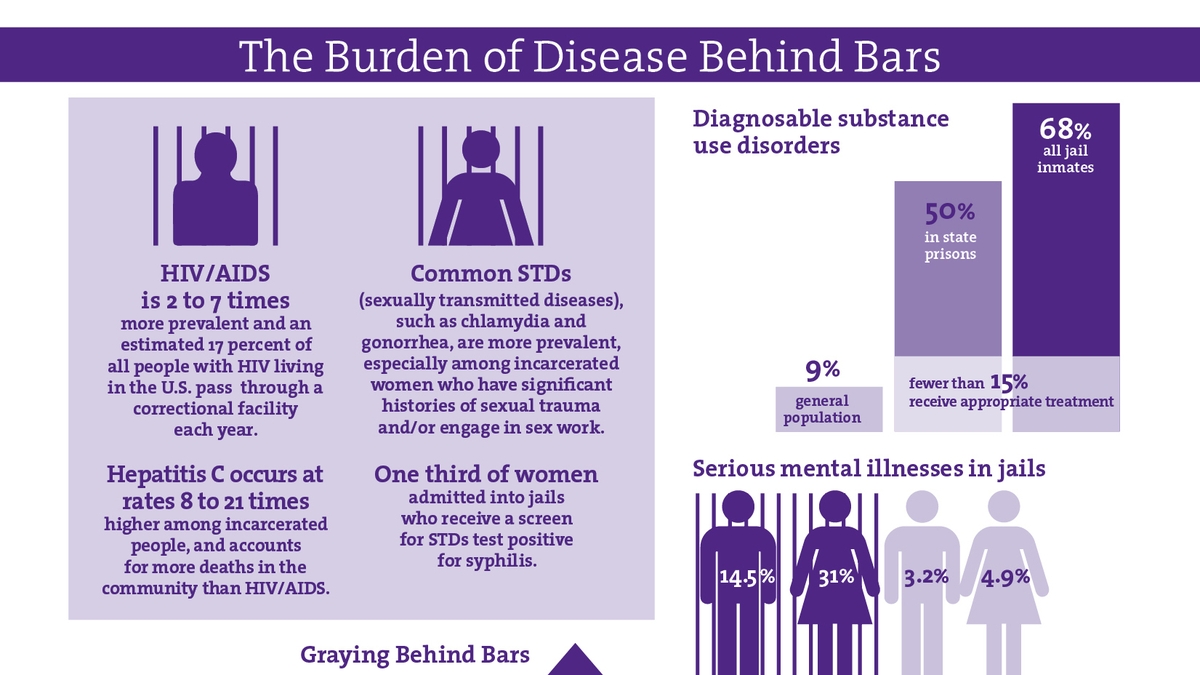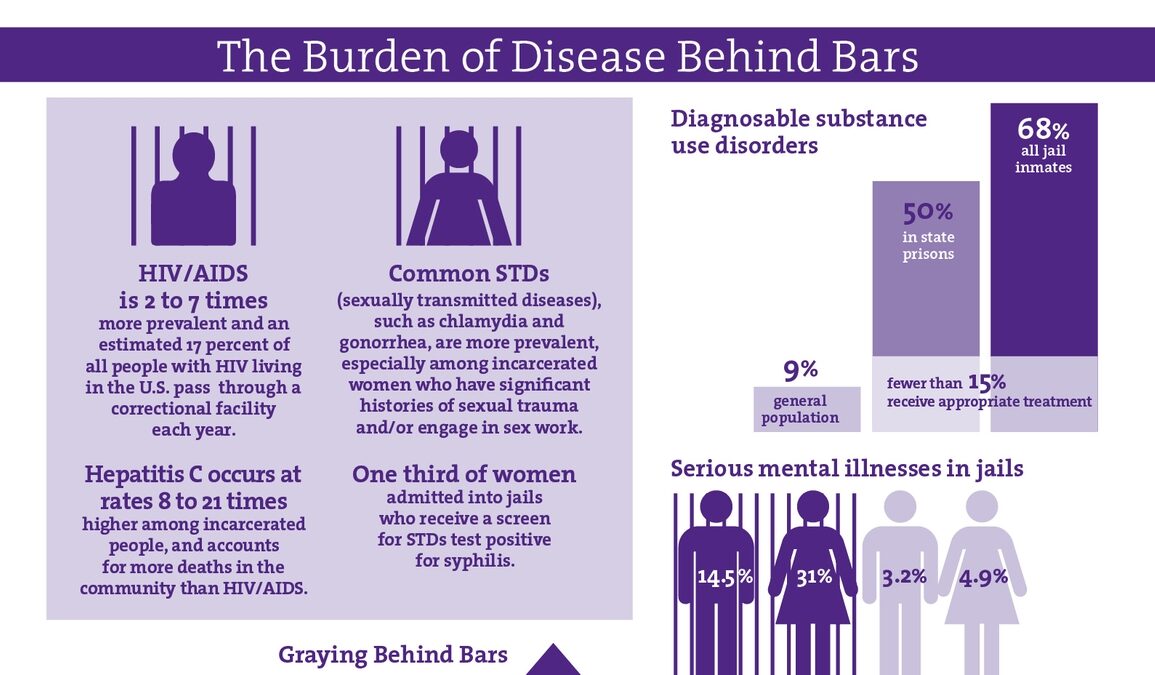
Understanding the Global Public Health Crisis in Prisons
Prisons globally represent a significant public health crisis, with inmates suffering from a higher rate of communicable and chronic diseases compared to the general population. The intricate relationship between health and imprisonment raises pressing concerns, necessitating urgent attention and action from policy makers, health professionals, and the public.
The Predicament of Substance Abuse in Prisons
Substance abuse disorders are prevalent in prisons, yet they are often punished more than treated, further exacerbating the crisis. In 2019, about 8% of the general population met the criteria for substance use disorders, but this figure soars among people arrested and incarcerated in federal and state prisons. Despite the effectiveness of Medication Assisted Treatment (MAT) in reducing opioid use and overdose deaths, the availability of such treatment in jails and prisons remains limited. This issue underscores the pressing need for comprehensive substance abuse treatment within the criminal legal system.
The Unjust Health Conditions in US Prisons
US prisons, in particular, are plagued by unjust health conditions. Overcrowding, lack of medical resources and staffing, inadequate mental healthcare, and a denial of proper healthcare contribute to this crisis. The situation is particularly dire for incarcerated women. Moreover, the use of privatized healthcare companies in prisons often hinders the provision of quality healthcare. There is a growing demand for oversight measures and a reduction in prison populations to tackle this issue and uphold the right to health for all prisoners.
Mental Health and Incarceration – A Tenuous Link
There is a disproportionate incarceration of people with mental health issues, often leading to a lack of treatment in facilities. Police involvement in responding to mental health crises often results in violence or incarceration rather than the necessary therapeutic interventions. This highlights the urgent need to address mental health within the criminal justice system, including the provision of adequate treatment and the reduction of violence.
Early Diversion Programs – A Step in the Right Direction
Some programs are working to address the behavioral health needs of individuals involved in or at risk of involvement in the criminal justice system. The Substance Abuse and Mental Health Services Administration (SAMHSA) awarded Law Enforcement and Behavioral Health Partnerships for Early Diversion grants in 2013. The recipients of these grants, including the Boulder County Sheriff’s Department, Connecticut Department of Mental Health and Addiction Services, and Tennessee Department of Mental Health and Substance Abuse Services, have implemented community-based diversion services to keep individuals with behavioral health issues out of the criminal justice system. These programs provide crisis intervention training for law enforcement, peer support specialists, wraparound services, and specialized crisis intervention teams for young adults. The overarching goal is to decrease the number of arrests while addressing public safety concerns and providing behavioral health treatment within the community instead of incarceration.
Conclusion – The Time for Reform is Now
The global prison system presents a pressing public health crisis that demands immediate attention and reform. There is a need for comprehensive substance abuse treatment, improved mental health services, and the implementation of early diversion programs to divert individuals with behavioral health issues away from the criminal justice system. It is also imperative to ensure the provision of quality healthcare for all prisoners and to reduce prison populations. The time for change is now, and the health of millions depends on it.
This post was originally published on this site be sure to check out more of their content.









